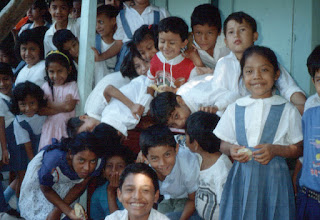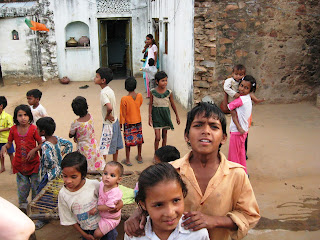 |
| On Winnipeg's Main Street: Painting of idyllic Indian life. |
Surprise, surprise! Canada is guilty of 'Cultural Genocide' in its dealings with our First Nations. (Actually, we are not surprised to hear this. Sadly, we expected this declaration.)
Several years ago, the Truth and Reconciliation Commission was formed with a mandate to investigate issues of abuse, and the resulting effects on Canadian society.
Yesterday, the report of the Truth and Reconciliation Committee was published after thousands of interviews, meetings held across our country, and an investigation into residential schools, among other institutions.
The Toronto Star says, "The report also describes how the legacy of residential schools — described as a central component to a government-led policy of cultural genocide — continues, not only through the direct effect that generations of institutionalization and abuse have had on survivors and their families, but how it is manifested in racism, systemic discrimination, poverty and dying indigenous languages."
Read more from Toronto Star.
 |
| Painting on Selkirk Avenue: Generations of First Nations |
The National Post says, “Cultural genocide is the destruction of those structures and practices that allow the group to continue as a group,” the report reads. “States that engage in cultural genocide set out to destroy the political and social institutions of the targeted group. Land is seized, and populations are forcibly transferred and their movement is restricted. Languages are banned. Spiritual leaders are persecuted, spiritual practices are forbidden, and objects of spiritual value are confiscated and destroyed. And, most significantly to the issue at hand, families are disrupted to prevent the transmission of cultural values and identity from one generation to the next. In its dealing with Aboriginal people,” the report states, “Canada did all these things.”
Read more from the National Post.
The Globe and Mail says, "After six years of combing through church records and crossing the country to talk to survivors, the Truth and Reconciliation Commission has concluded that Canada’s treatment of aboriginals at residential schools amounted to ‘cultural genocide.’ The commission released 94 recommendations Tuesday as part of a summary of its landmark final report. The report includes a common theme of concern that its work should not be forgotten, but rather should lead to concrete steps to improve the lives of aboriginal people in Canada."
Read more from the Globe and Mail.
I will be commenting on this national disgrace and its implications in further posts.





















